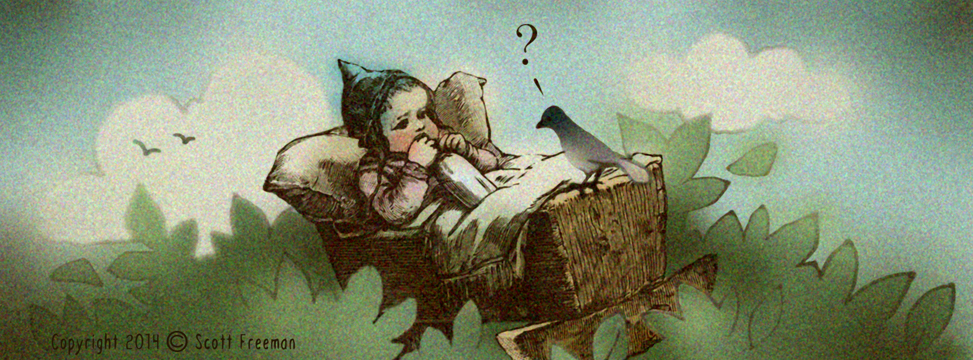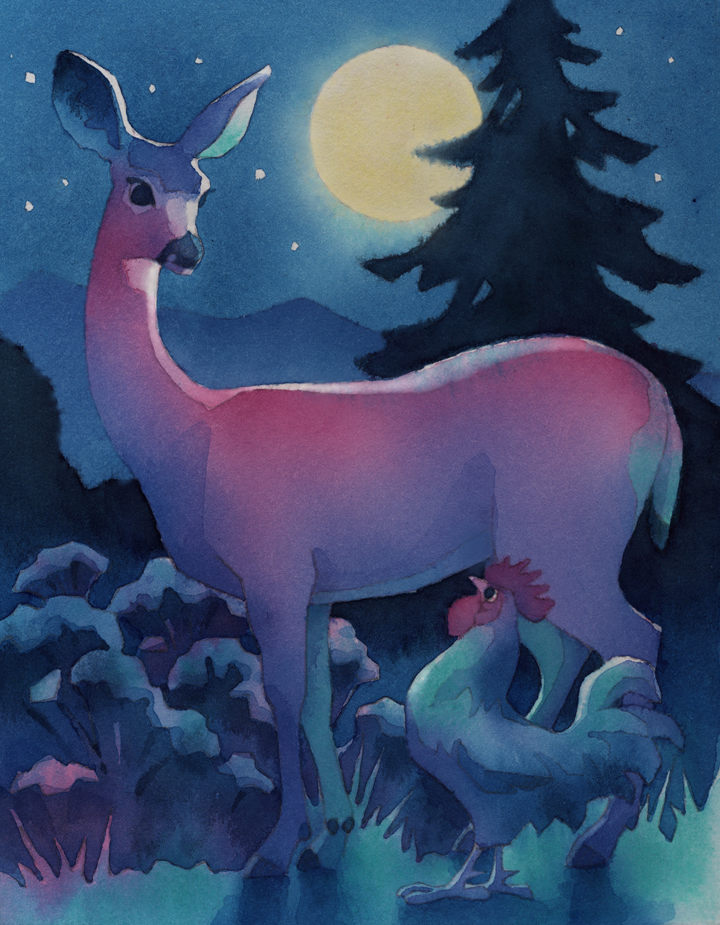 Revisionism can cut both ways.
Revisionism can cut both ways.
A few years ago my wife and I were in a public place with one of our teenaged daughters. She happened to hear the lyrics from the lullaby, Rock-a-bye Baby, and her mouth dropped open. She turned to us and exclaimed, “Did you hear what they said?”
“What?” I innocently asked.
“They said the bough breaks and the baby falls out of the tree!” she replied. “That’s terrible!”
My wife and I sheepishly looked at each other. “Umm…actually… those are the real lyrics,” I said, grinning.
“Are you serious?!…
I guess I forgot to tell my daughter that when she and our other children were small, I made a small change to the classic lullaby, and changed a few bedtime stories to boot.
The first time I started singing Rock-a-bye-Baby at bedtime with my first child, I stopped myself mid-lullaby. I thought it seemed almost like a taunt; sweetly singing to a child about the wind blowing and breaking the branch, and the baby then falling out of the tree. ‘Sweet dreams, kid! I imagined him lying in the dark after I kissed him goodnight, wide-eyed and staring at the ceiling, fitfully drifting off to sleep, having nightmares about falling. So I changed the lyrics to:
Rock-a-bye baby in the treetop,
When the wind blows the cradle will rock,
When the bow breaks the cradle will fall,
And Daddy will catch you, cradle and all.
And that’s what our kids grew up hearing. After adding this to my repertoire of bedtime lullabies, and singing it to our five kids over a period of years, after a while I never thought about it anymore.
A lot of old nursery rhymes left me scratching my head. What were these people thinking? Did they hate children? Were they even parents? Who wrote Jack and Jill, and Little Miss Muffet? And that one about the blackbird pecking off the maid’s nose? (Apparently, a 1744 version published in London had “four and twenty naughty boys baked in a pye.” Which, I guess, grisly though it is, at least has a point.)
With contemporary books it’s sometimes easier to guess the author’s intentions. A couple of my kids liked a certain storybook that I had picked up, used, from a garage sale. I purchased it because the illustrations were very nice, and, as an illustrator, I enjoyed looking at them. Plus, I liked the idea of the story. It was narrated by a little girl, and the story was really just her talking about her family, her dog, and her grandparents, and their lives together. I no longer have the book, but I’m pretty sure it was called, Come to Our House, Meet Our Family. It made for a cheerful and pleasant bedtime story.
I would guess the book was published in the late 1960’s or 70’s, and it seemed clear to me that part of the author’s intent was to normalize the idea of both Dad and Mom working outside the home. (The mom was a dentist.) I was fine with that, but I also wanted to do a little normalizing of my own. Toward the end of the book, there was an illustration of the Mom and Dad, and the boy and girl, and Smudge, the dog, all laughing together on the parent’s big blue bed. It said something like:
“On Sunday mornings my brother and I jump into Mom and Dad’s bed and wake them up. After a while we all go downstairs and make breakfast together.”
I would always cheerfully add a simple line that wasn’t really there: “Then we go to church!”
I had been struck by how rarely church-going is mentioned as a normal part of life in books and movies. As though it’s an embarrassing habit that we should all be quiet about. As though no one attends church in this country! Since this was a simple, unremarkable story about a normal family, I thought it would be nice for my kids to grow up thinking that going to church was simply a normal part of life. In fact they did grow up thinking this, but no thanks to the storybooks we read. Except for maybe this one.
I suppose someone might argue that classic fairy tales and nursery rhymes are the pinnacle of children’s literature for young children, but I’m not that person. Some I like very much, but some of them are downright creepy. I think there is room in the world for some children’s stories that are intentional about reinforcing a biblical worldview, yet without being so pedagogical that all of the enjoyment is sucked out. My conversations with other parents and grandparents have led me to believe I’m not alone in thinking this.
I would love to hear suggestions and insights from other parents on the subject of children’s books and stories. What do you like? What do your kids love? What is missing?
UPDATE: I’m happy to say that my first new book, The Cocky Rooster, is finished and I’m waiting to get proofs back from the print-on-demand company before I make it available to you. My next post will introduce you to the book specifically.
I’ll talk to you then! May God bless you as you seek to make Him known to the children in
your care,
— Scott Freeman

